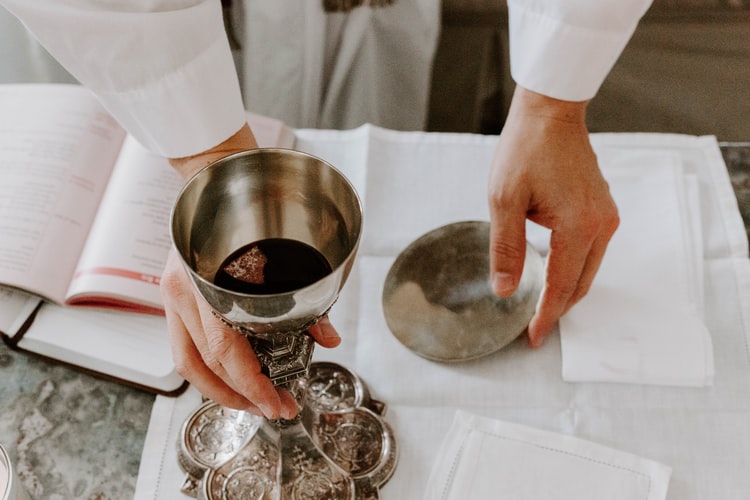The mass gathering of Filipinos for religious activities as well as work in “essential” industries will be allowed in areas placed under general community quarantine (GCQ), Presidential Spokesman Harry Roque announced in a today.
The gatherings will be permitted as long as the people present will keep a two-meter distance between and among themselves, Roque said in a virtual press briefing.
“[M]andatory wearing of face mask, face shield, or other facial protective equipment is maintained during the entirety of the [religious] event,” he added.
Approved gatherings include funeral rites led by religious leaders. Roque added that the deceased’s immediate family will likewise be allowed to attend the wake, given that they show proof of their relationship to the deceased.
“Pastors, priests, imams, or such other religious ministers whose movement shall be related to the conduct of necrological or funeral rites [will be allowed to attend],” he said.
“In this connection, immediate family members of the deceased from causes other than COVID-19 shall be allowed to move from their residences to attend the wake or interment of the deceased upon satisfactory proof of their relationship with the latter and social distancing measures,” Roque added.
Read: Filipinos who attended Malaysian religious event urged to report to Health Department
In the past, religious gatherings have been somewhat of a petri dish for the transmission of the virus. One of the country’s first local cases for example, included a 69-year-old patient who frequented a Muslim prayer hall in Greenhills, the masjid was shut down and disinfected.
A mosque gathering in Kuala Lumpur called ijtimak tabligh, led to one of Malaysia’s biggest single-day jump in coronavirus cases, and at least 70 Filipinos who attended the event tested positive for the coronavirus. Shincheonji Church of Jesus, an alleged religious cult in South Korea has been blamed for spreading the disease in the country, with nearly 9,000 of its members saying they were showing symptoms for the coronavirus, BBC reports.
Meanwhile aside from religious gatherings, the Philippine government has also allowed the resumption of work in “essential” construction projects and the partial reopening of non-leisure shops in malls such as restaurants and supermarkets.
The agriculture industry, food manufacturing companies, as well as general utility firms, will be allowed to fully open under GCQ, while repair and maintenance services, call centers, and banks are allowed to resume on-site work but only partially. Half of their workforce are still required to work from home.
There are currently two types of quarantines in the country: The enhanced community quarantine (ECQ), which is imposed in Metro Manila and other “high-risk” places; and the GCQ, a form of quarantine with more relaxed measures which will be imposed on May 1 on “low” and “moderate risk” areas.
Read: PH gov’t revises areas under ‘enhanced community quarantine’ effective May 1
Here are high-risk areas where the ECQ continues to be implemented. Religious and work gatherings are not allowed in these places:
- National Capital Region
- Central Luzon except Aurora
- Calabarzon
- Pangasinan
- Benguet including Baguio City
- Iloilo province
- Cebu province including Cebu City
- Davao City
Meanwhile, Trade and Industry Secretary Ramon Lopez, a member of the country’s COVID-19 task force, said working senior citizens will now be allowed to leave their house under GCQ areas.
Initially, the government forbade Filipinos aged 60 and above from leaving their homes but Lopez said that the “overall policy” was meant to protect the elderly and not to put them under “house arrest.”
“The operating guidelines are to be issued. Of course, the seniors who are actively working or running businesses will be allowed. We will use [an] ID system,” he said, and added that seniors seeking medical procedures will also be allowed to leave their homes.




